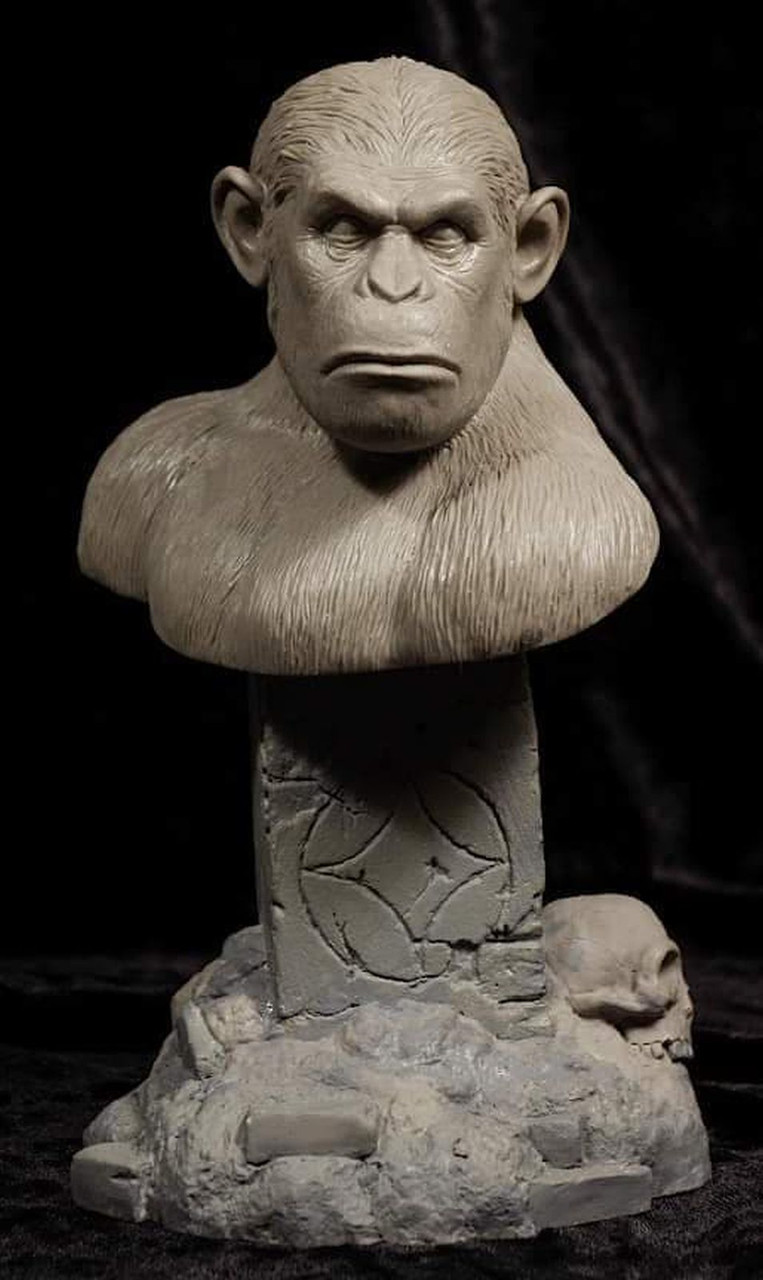What makes the Planet of the Apes series so compelling? The answer lies in its intricate storytelling, character development, and a narrative that transcends traditional boundaries. This is not just another sci-fi franchise; it's a profound exploration of humanity, power, and survival. Rise of the Planet of the Apes (2011) set the stage for an unforgettable journey through time and morality.
Rise of the Planet of the Apes, directed by Rupert Wyatt, brought a fresh perspective to the iconic franchise. The film focuses on Caesar, portrayed with incredible depth by Andy Serkis. It tells the story of how genetic experimentation leads to the emergence of intelligence among apes, culminating in their rebellion against human oppression. Set against the backdrop of scientific ambition and ethical dilemmas, the movie delves into themes of family, freedom, and the consequences of playing God.
| Bio Data & Personal Information | Career & Professional Information |
|---|---|
| Name: Caesar (Fictional Character) | Role: Leader of the Ape Rebellion |
| Species: Chimpanzee | Significant Contributions: Initiator of the Ape Revolution |
| Birthplace: Gen-Sys Laboratories, San Francisco | Key Films: Rise of the Planet of the Apes (2011), Dawn of the Planet of the Apes (2014), War for the Planet of the Apes (2017) |
| Foster Father: Will Rodman | Notable Skills: Intelligence, leadership, empathy, communication |
| Mother: Bright Eyes | Reference Website: IMDb Profile |
In the original timeline, there was no Caesar as we know him today. Instead, the gorilla Aldo led the apes to rise. However, this version diverges significantly from earlier iterations of the franchise. When Cornelius and Zira escape Earth in the original series, they carry with them the seeds of a new civilization. In contrast, Caesar's story begins within a laboratory setting where his mother, Bright Eyes, undergoes experiments designed to enhance cognitive abilities. These enhancements inadvertently pass to her offspring during pregnancy—a fact unknown to the scientists until after Caesar’s birth.
Caesar grows up under the care of Will Rodman, a compassionate scientist who becomes both father figure and mentor. As he matures, Caesar demonstrates remarkable intellect, learning sign language and forming complex thoughts about identity and belonging. His world shifts dramatically when circumstances force him into an ape sanctuary, where he encounters others of his kind for the first time. There, he discovers strength in unity and resolves to fight for freedom—not only for himself but for all apes subjected to captivity.
A pivotal moment occurs when Caesar constructs a model of the Statue of Liberty, holding its spiked crown aloft. This act symbolizes more than mere craftsmanship; it represents hope and defiance. For viewers familiar with the broader Planet of the Apes lore, this gesture carries immense weight, linking past and future narratives seamlessly. Yet, questions linger: How did Will and the other scientists fail to notice Bright Eyes’ pregnancy? And what implications does this oversight have on the larger story?
Character development plays a crucial role throughout the trilogy. From Rise of the Planet of the Apes to War for the Planet of the Apes, Caesar evolves from a curious young ape into a wise and resilient leader. Alongside him stand allies like Maurice, Koba, and later Cornelia—his wife and steadfast companion. Each character contributes uniquely to the unfolding drama, enriching the tapestry of relationships central to the films' emotional core.
While Caesar dominates much of the narrative, secondary characters also merit attention. Cornelia, though quieter compared to some counterparts, embodies resilience and grace. Her presence anchors Caesar emotionally, providing balance amidst chaos. Similarly, Koba serves as a foil to Caesar, embodying rage and mistrust toward humans. Their dynamic tension drives key plot points, particularly in Dawn of the Planet of the Apes.
The trilogy spans six years, concluding with War for the Planet of the Apes in 2017. Over this period, audiences witness the gradual decline of human dominance and the ascendance of ape society. Themes of war, betrayal, redemption, and reconciliation permeate each installment, challenging viewers to reflect on their own species' flaws and potential for growth.
One notable aspect of the series is its commitment to realism. Through motion capture technology and groundbreaking visual effects, Andy Serkis breathes life into Caesar, creating a performance hailed as one of cinema's most convincing portrayals of non-human intelligence. His nuanced expressions and body language convey layers of emotion, making Caesar relatable despite his simian nature.
As the trilogy progresses, the stakes escalate. Humanity faces extinction due to a virus unleashed by the same experiment that created Caesar. Meanwhile, apes strive to establish autonomy while grappling with internal divisions. By the final film, the conflict reaches its zenith, forcing Caesar to confront existential questions about leadership, justice, and legacy.
Ultimately, the Planet of the Apes reboot succeeds because it respects its source material while forging its own path. Each film builds upon the last, expanding the universe without losing sight of fundamental truths. Whether exploring familial bonds, societal structures, or interspecies relations, the series resonates deeply with contemporary audiences.
For those intrigued by Caesar’s journey, further exploration reveals additional layers of complexity. References abound connecting various installments, rewarding attentive viewers. Moreover, supplementary materials such as comics and novels expand the canon, offering alternate perspectives and untold stories.
In conclusion, Rise of the Planet of the Apes and its sequels represent a triumph of modern filmmaking. They combine technical innovation with thoughtful storytelling, producing a saga that captivates and provokes thought long after credits roll. With Caesar at its heart, the franchise redefines what it means to be a hero—and reminds us that progress often demands sacrifice.



